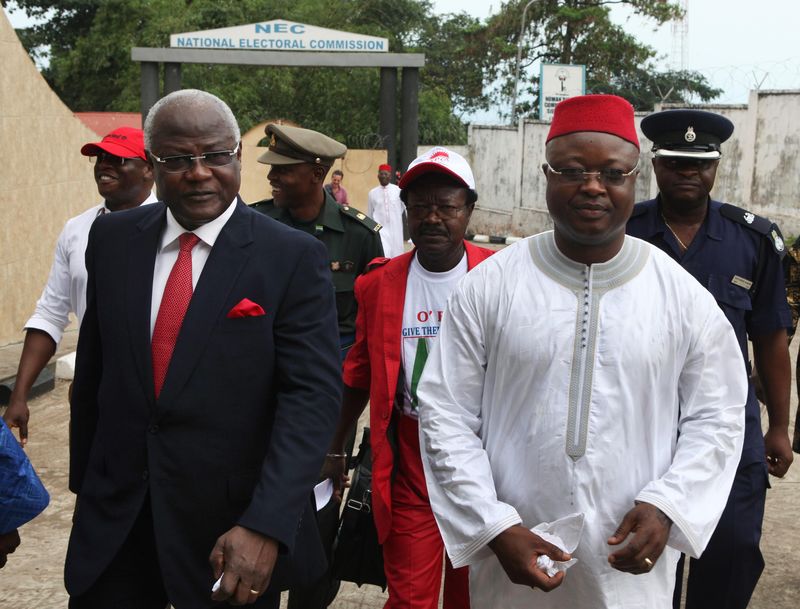By Umaru Fofana
FREETOWN (Reuters) - Sierra Leone's Vice President Samuel Sam-Sumana said he had requested asylum at the U.S. embassy in Freetown after soldiers surrounded his residence on Saturday following his expulsion from the ruling party last week.
Sam-Sumana was expelled from President Ernest Bai Koroma's All People's Congress (APC) party after an investigation accused him of creating his own rival political movement and fomenting violence in his home region of Kono, in diamond-rich eastern Sierra Leone.
He has denied the allegations - which also included charges of lying about his academic credentials and his Muslim faith - and rejected calls for him to resign.
His expulsion from the party has stirred confusion as Sierra Leone's 1991 constitution only allows the dismissal of the vice president with the vote of two-thirds of parliament, but it does require the office holder to belong to a political party.
Sources in the security forces confirmed that troops were sent to the vice president's home on Saturday to withdraw his security detail but they declined to say who had ordered it.
"I have fled my house and am with my wife in a place I cannot disclose, waiting to hear from the U.S. ambassador, whom I have asked for asylum," Sam-Sumana told Reuters.
As night fell on Freetown, he said he would remain in hiding and not return to his residence because he did not feel safe there.
An embassy spokesperson said they were aware of the situation and were monitoring it, but declined to make any further comment.
Government spokesman Abdulai Bayraytay, who said he was travelling with Koroma in northern Sierra Leone, declined to comment.
Koroma, who is serving his second five-year term, is obliged to step down at elections due in 2017. Sam-Sumana has been his vice president since 2007.
A spokesman for the opposition Sierra Leone People's Party (SLPP) expressed grave concern at the situation and said the state was obliged to protect Sam-Sumana, as he remained vice president.
In late February, Sam-Sumana said that he was placing himself in a 21-day quarantine after one of his bodyguards died of Ebola amid a surge in new infections in the West African country.

More that 3,600 people have died from Ebola in Sierra Leone, one of the three countries hardest hit by the worst recorded outbreak of the deadly haemorrhagic fever - along with Guinea and Liberia. The outbreak has killed more than 10,000 people.
